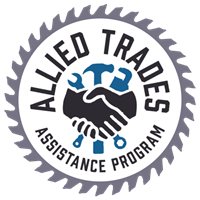Hope’s Destiny in Horsham, PA, offers evidence-based outpatient care for mental health and co-occurring disorders, empowering lasting change through compassionate treatment.
Take the next step in your recovery journey while maintaining your daily life. At Hope’s Destiny, our Outpatient Program provides flexible, personalized care for adults and adolescents who are ready for a lower level of support. With expert guidance and evidence-based treatment, you’ll build lasting recovery skills while balancing work, school, and family commitments. Our compassionate team helps you strengthen your foundation and transition confidently into sustainable wellness.
Our Outpatient Program provides structured yet flexible mental health support that seamlessly integrates into your daily life. In this program, clients typically attend 1-2 sessions per week, with each session lasting 50-60 minutes. This level of care serves as both a step-down option for those transitioning from more intensive programs and an entry point for individuals seeking professional support while managing mild to moderate symptoms.
We specialize in treating a wide range of mental health conditions and co-occurring disorders, including depression, anxiety, trauma, PTSD, substance use disorders, bipolar disorder, and other mood disorders. Our experienced clinicians work collaboratively with you to develop practical coping strategies, address underlying mental health challenges, and maintain long-term stability. Through a combination of evidence-based therapies and holistic approaches, we create personalized treatment plans that address both immediate concerns and ongoing wellness goals.
Our program offers flexible scheduling options, including evening appointments. This flexibility ensures you receive the professional care you need without disrupting your work, school, or family commitments. Our supportive environment and comprehensive approach help you build a stronger foundation for lasting recovery while maintaining your regular routines and responsibilities.

Our Outpatient Program offers the flexibility you need to prioritize your mental health while maintaining your daily responsibilities. Connect with our caring admissions team today for a free, confidential consultation. We’re available to answer your questions, provide a quick assessment, and help you find the right path forward.
In our Outpatient Program, you’ll receive comprehensive, individualized care designed to support your mental health and recovery goals. For new clients, your journey begins with thorough biopsychosocial and psychiatric evaluations to understand your complete health picture. For clients transitioning from our PHP or IOP programs, we’ll build upon your existing assessments and treatment progress.
Your treatment experience combines several evidence-based approaches for lasting recovery. In weekly individual therapy sessions, you’ll work one-on-one with your therapist in a confidential space to explore thoughts and feelings and develop personalized coping strategies. Our group therapy sessions provide valuable opportunities to connect with peers, share experiences, and practice new skills in a supportive environment. Through structured psychoeducation, you’ll gain deeper insights into mental health conditions, recognize triggers, and learn evidence-based techniques for managing symptoms.
Our integrated approach includes skill-building workshops focused on stress management, emotional regulation, and effective communication. Family therapy sessions are available to strengthen your support system and help loved ones understand how to best support your recovery journey. When appropriate, our psychiatric team provides medication management and monitoring.
Throughout your time in the program, we conduct regular progress evaluations and coordinate with other healthcare providers to ensure comprehensive care, helping you build a stronger foundation for maintaining long-term mental wellness while successfully managing daily responsibilities.
Our Outpatient Program is ideal for individuals who are ready to engage in their recovery while maintaining daily responsibilities. This level of care is particularly well-suited for those who:
Our admissions team will work with you to determine if OP is the right fit for your current needs and goals, ensuring you receive the most appropriate level of care for your situation.
FREQUENTLY ASKED QUESTIONS
INSURANCE PROVIDERS
We proudly partner with major insurance providers and work directly with them on your behalf to make care more affordable and within your reach.







APPOINTMENT
Complete the form, and a caring member of our team will reach out to you shortly.
Copyright © 2025 Hope’s Destiny | All Rights Reserved | PRIVACY POLICY